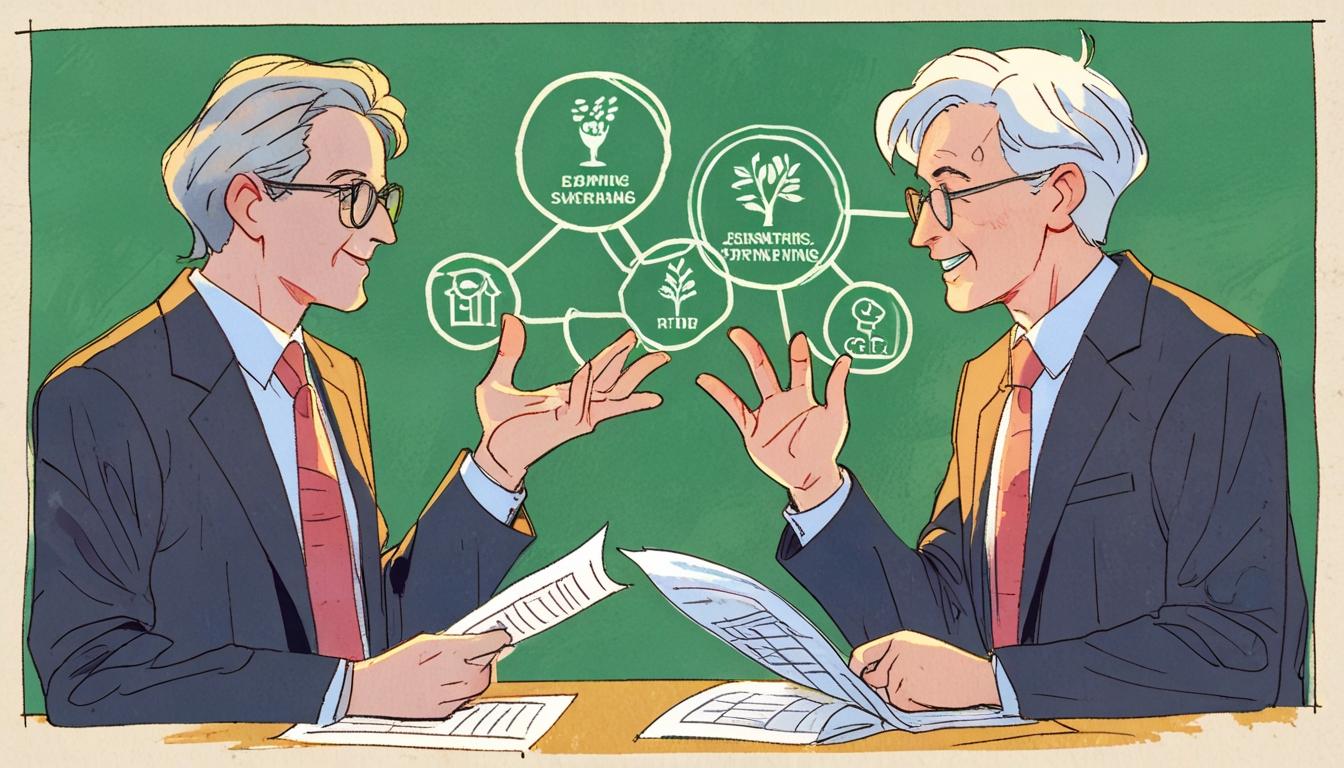In a recent roundup of insights curated for business school faculty, diverse perspectives ranging from sustainability to consumer behaviour and leadership ethics were discussed in depth. This week’s focus covers opposing views on environmental, social, and governance (ESG) investing, the adaptive strategies of retail giant Ikea, the silence of CEOs amidst political turmoil, the challenges faced by McDonald's, and the booming AI application start-up sector.
Two professors from NYU Stern offer conflicting perspectives on ESG. One professor argues that ESG is beyond redemption, urging for its demise, while the other posits that sustainability is a viable focus for astute investors. This contrasting viewpoint presents a fertile ground for student analysis around the merits of corporate sustainability and its impacts on return on investment in the classroom.
Ikea's strategic pivot towards smaller, urban retail spaces marks a significant evolution in its business model in response to changing consumer habits. The Swedish retailer is not only adjusting to increased online shopping and reduced car ownership but is also investing in premium locations to bolster its physical presence, which in turn is thought to elevate its online sales. Despite broader struggles in the retail sector, Ikea stands as a case study on balancing mass-market appeal with sustainability, raising questions about modern consumer culture.
Meanwhile, the article on CEO silence highlights a significant leadership challenge in the context of political upheaval. It notes that many US company leaders have refrained from publicly opposing President Donald Trump's tariff policies, despite mounting evidence suggesting these could negatively impact economic growth and consumer prices. The absence of vocal opposition raises questions about the responsibilities of CEOs in protecting stakeholder interests and whether they are adhering to the economic philosophy proposed by Milton Friedman, which suggests a primary focus on profit maximisation within the rules of business.
McDonald's is facing its most significant drop in US sales since the pandemic, with a reported 3.6% decline in same-store sales attributed to reduced customer traffic and heightened anti-American sentiment abroad. This decline is coupled with a strategic response in the form of promotional efforts such as a $5 meal deal. The fast-food giant is exemplifying the broader economic challenges impacting low- and middle-income consumers; however, the effectiveness of these promotions remains to be seen.
Lastly, a recent surge in AI application start-ups is transforming the technological landscape. Companies leveraging large language models are experiencing significant funding and revenue growth, with some generating up to $200 million annually. This development signifies a potential shift in investment strategies towards application-layer start-ups as they showcase the capacity to innovate and scale rapidly. Nevertheless, concerns around customer loyalty and market sustainability persist, emphasising the competitive landscape among larger tech firms.
These articles collectively provide a platform for educators and students to engage in critical discussions regarding the intersections of leadership, market evolution, and ethical responsibilities in the modern business milieu.
Source: Noah Wire Services
